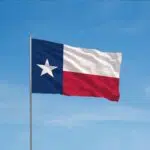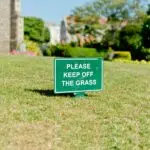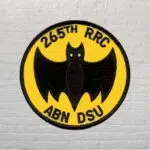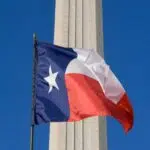Big Word Day takes place on April 21 every year. Big Word Day is all about words, specifically coming up with new large words to keep the English language alive and well. Every language on the planet has a lexicon made up of words. Through speech, people have created and polished words over time. We tend to use short words when communicating, so we can convey more meaning with fewer words. Big Word Day is exactly what the world needs.
History of Big Word Day
We use words in our day-to-day life, many of which can be found in a dictionary. An Englishman named John of Garland coined the term ‘dictionary’ in 1220 while writing a book called “Dictionarius” to aid Latin diction. From that time onwards, several attempts at writing a dictionary were made. It wasn’t until Samuel Johnson’s “A Dictionary of the English Language” that a more reliable English dictionary was created (1755). “Johnson’s Dictionary,” first published in 1775, is highly regarded by lexicographers today. In addition to creating the methodical tone of reference books, Johnson produced a widely emulated style of biography and literary critique.
His dictionary was the first to cover both written and spoken English. It was also the first attempt to impose a spelling and grammar standard on an unruly English language that lacked an equivalent of an academy to defend its use as proper or improper. “Johnson’s dictionary” was the English-language standard for over 150 years, until 1884, when the Oxford University Press began developing and publishing the “Oxford English Dictionary” in short fascicles. It took over 50 years to complete this massive project, and the “O.E.D.” was finally published in twelve volumes in 1928.
In 1807, Webster began compiling an American Dictionary of the English Language, which he completed during his year abroad in Paris, France, and at the University of Cambridge in 1825. His book contained seventy thousand terms, twelve thousand of which had never appeared in a dictionary. In 1840, the second edition was published in two volumes. G & C Merriam Co. bought Webster’s dictionary after his death in 1843, and Encyclopedia Britannica bought Merriam-Webster in 1964.
Big Word Day timeline
An Englishman named John of Garland coins the term ‘dictionary.’
Richard Mulcaster publishes a non-alphabetical compilation of words and calls it “The Elementarie.”
Samuel Johnson develops a more reliable English dictionary.
Webster publishes his dictionary in 1828 at the age of 70.
The “Oxford English Dictionary” is published in twelve volumes by Oxford University Press.
Big Word Day FAQs
What is the shortest English word?
Eunoia is the smallest word in the English language that contains all five primary vowels, with only six characters.
What is the 30-letter word?
‘Pseudopseudohypoparathyroidism is the 30-letter word.
What word takes 3.5 hours to pronounce?
‘Methionylthreonylthreonylglutaminylarginyl isoleucine’ — this is the chemical name for the human protein ‘titin’ (also known as ‘connectin’).
Big Word Day Activities
Elevate your vocabulary
On Big Word Day, we celebrate language. Use these 24 hours to elevate your conversational vocabulary to the next level, making your speech more unique and engaging.
Learn some new words
Celebrate the day by learning some of the longest words in the English language and attempting to use them in conversation. People will be blown away if you can incorporate these terms into your interactions!
Read up on how to use big words
There are a plethora of other words you could learn that aren't quite as intimidating but can still make you sound intelligent. It might be a good idea to brush up on how to learn and use these big words.
5 Fun Facts About Words
The word ‘hydroxyzine’
In the English language, hydroxyzine is only one word containing the letters ‘x,’ ‘y,’ and ‘z’ in that order.
The longest English word
Nearly 190,000 letters make up the longest English word.
Broken bench
The term ‘bankrupt’ is derived from the Italian word for ‘broken bench.’
Longest word in a major dictionary
In a major dictionary, the longest word, pneumonoultramicroscopicsilicovolcanoconiosis, is 45 letters long.
The longest words without vowels
‘Crwth’ and ‘cwtch’ are the longest words with no vowels.
Why We Love Big Word Day
Words promote cross-cultural communication
Words have meaning, and that meaning is communicated when they are ordered in appropriate grammatical frameworks. Words are used to communicate across cultures, form alliances, and settle disputes.
Words improve our English proficiency
A large vocabulary improves our listening, speaking, reading, and writing skills. Vocabulary not only helps children develop their ability to think and learn about the world, but also provides them with unrestricted access to new information.
Words promote self-expression
Self-expression is defined as "the act of expressing one's thoughts and feelings through words, choices, or actions." Poems and spoken words are both powerful modes of artistic expression. Words give us personality and allow us to better express our thoughts and ideas.
Big Word Day dates
| Year | Date | Day |
|---|---|---|
| 2026 | April 21 | Tuesday |
| 2027 | April 21 | Wednesday |
| 2028 | April 21 | Friday |
| 2029 | April 21 | Saturday |
| 2030 | April 21 | Sunday |




























